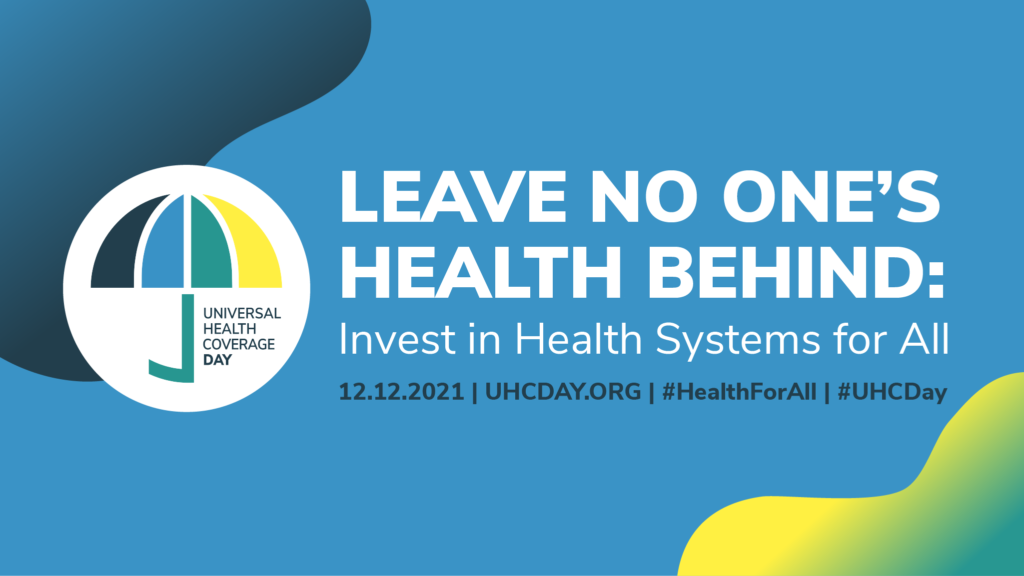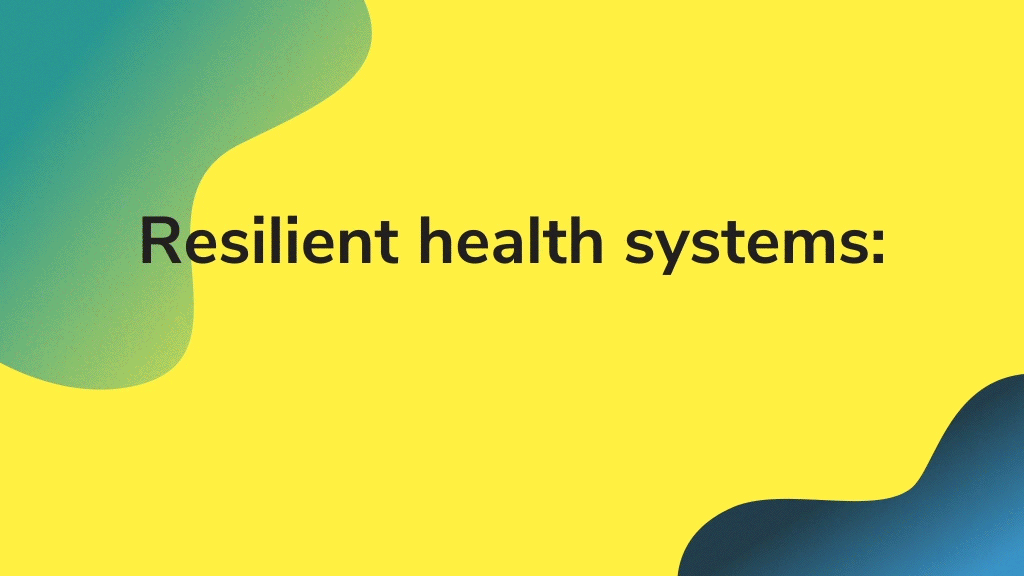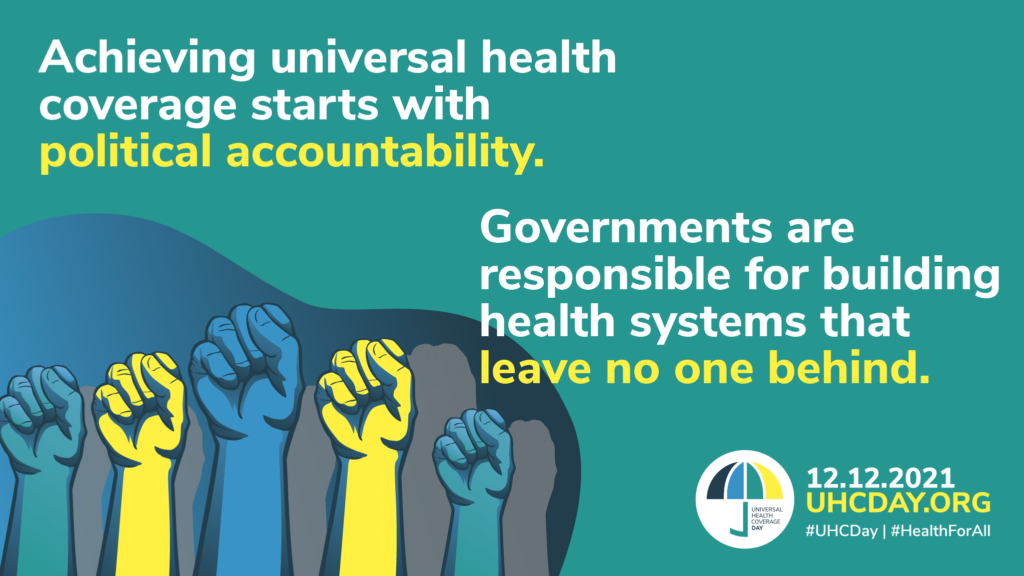The goals of Universal Health Coverage (UHC) are laudable, but also ambitious and complex. Achieving a world in which all people get the health services they need without financial hardship requires bold actions from governments.
In practice, this means that countries must be capable of ensuring the continuity of essential health services while addressing new shocks to the health system. Health facilities and workers must have the tools, equipment and funding needed to consistently deliver good quality healthcare. People must be able to access care without being pushed into poverty.

Unfortunately, the COVID-19 pandemic revealed the gaps in these capacities in African countries, further worsened by being ‘left at the back of the vaccine queue’ and largely surviving on unpredictable donations, when the COVID-19 vaccines arrived. As I reflect on this year’s UHC Day theme, ‘Leave No One’s Health Behind: Invest in Health Systems For All’, I share critical lessons that Africa must learn from its COVID-19 pandemic experience.
First, there is an urgent need to move beyond political rhetoric and make actual financial and political investments in health systems. The pandemic showed that spending on healthcare is an investment. Therefore, ministries of finance and health must boldly implement ambitious health sector plans that address UHC goals as recommended by the Africa Leadership Meeting.
Health financing must be prioritised. In 2018, only two countries met the Abuja declaration benchmark of 15% of budget allocation to health. With political will and by leveraging innovative forms of financing like debt swaps, African countries can increase the fiscal space for health while making equal investments in the efficiency of health spending.

Access to high quality healthcare must be guaranteed for all. Earlier in the pandemic, poor and vulnerable populations without access to free healthcare avoided occasions of care even when they experienced widely advertised symptoms because they could not afford user fees, contributing to the community spread of infections on the continent.
Innovations are critical for strengthening health systems and played a big role in the pandemic response. For instance, Rwanda utilized functional telemedicine/virtual clinic facilities to ensure the continuity of essential services, and other countries introduced similar facilities in the face of declining hospital attendance occasioned by fear of contracting the virus in hospital settings. Drones were deployed to supply vaccines and other lifesaving medications. Going forward, these innovations must be sustained.
The private sector must be incorporated into health system strengthening activities. Early in the pandemic response, it was clear that countries could not fight the battle through the public sector alone. They needed support from the private sector. This support came in the form of financing with innovative value-based partnerships, such as CACOVID in Nigeria. It was also in the form of additional surge capacity ensuring that countries were able to meet the service delivery demands of increasing COVID-19 cases. Nevertheless, it was evident that many African countries lacked the capacity to properly engage and contract with the private sector and that is a gap that needs to be filled now.
As part of improving health systems’ resilience, countries must invest in data systems. These systems should be integrated and have the capacity to provide disaggregated and real-time data that can be used by healthcare leaders to course-correct in real-time. In Africa, the pandemic revealed a capacity to generate, analyse and triangulate multiple sources of data to coincide with real-time decision-making. Going forward, this body of work should be encouraged and mainstreamed to include the monitoring of essential health services.
With the prioritization of advance purchase agreements through bilateral deals between high income countries and vaccine manufacturers, African countries were left at the back of the queue with very limited access to vaccines. Therefore, Africa must prioritise its own health security by investing in vaccine and other healthcare commodities manufacture, to prevent a replay of this situation in future public health emergencies.
Finally, although the term ‘global solidarity’ has been a catch-phrase throughout this pandemic, in practice, Africa has seen very little of it. High income countries have prioritised themselves, used politics rather than science as the basis of decisions, donated vaccines at the points of expiry and used vaccines as diplomacy tools rather than contributing to the kitty of COVAX and allowing needs and equity to decide distribution.

It is my hope that as we reflect on the noble ideals of UHC, that we are guided by the new international treaty on pandemic prevention and preparedness and discussions on financing of the global commons for Pandemic Preparedness and Response. However, these plans must be implementable and enforceable and not just new contributions to an already overflowing arsenal of rhetoric.
This UHC Day, I call for concerted action and accelerated progress towards UHC in Africa by working to address the prevalent issues facing the continent. African leaders must build on the progress made during this pandemic, to strengthen the capacity of the continent to respond better to future health system shocks. It is time for Africans to deliver for Africa.
Publication of the Africa Policy Journal Online is done in partnership with the Harvard University Center for African Studies.
